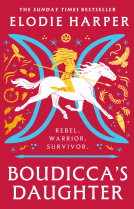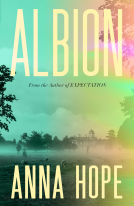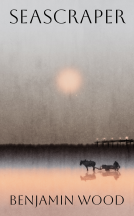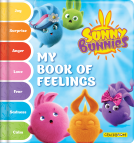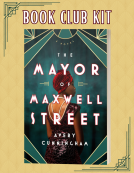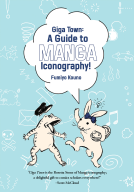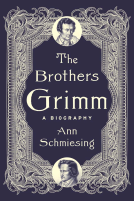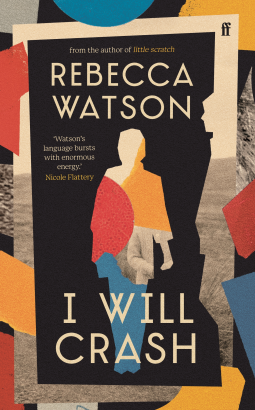
I Will Crash
by Rebecca Watson
This title was previously available on NetGalley and is now archived.
Send NetGalley books directly to your Kindle or Kindle app
1
To read on a Kindle or Kindle app, please add kindle@netgalley.com as an approved email address to receive files in your Amazon account. Click here for step-by-step instructions.
2
Also find your Kindle email address within your Amazon account, and enter it here.
Pub Date Jul 04 2024 | Archive Date Jul 18 2024
Talking about this book? Use #IWillCrash #NetGalley. More hashtag tips!
Description
What brother do I know?
I know a sketch, I know lines on tracing paper.
How long has my brother not been mine?
It’s been six years since Rosa last saw her brother. Six years since they last spoke. Six years since they last fought. Six years since she gave up on the idea of having a brother.
She’s spent that time carefully not thinking about him. Not remembering their childhood. Not mentioning those stories, even to the people she loves.
Now the distance she had so carefully put between them has collapsed. Can she find a way to make peace – to forgive, to be forgiven – when the past she’s worked so hard to contain threatens to spill over into the present?
From the acclaimed author of little scratch, this is a moving, powerfully honest novel about how we love, how we grieve and how we forgive.
Advance Praise
'Rebecca Watson’s unique style is completely immersive; I felt as though I was inside of Rosa’s head, spiralling with her into uncertain memories. I Will Crash is an unforgettable ghost story.' NATASHA BROWN
'I Will Crash proves once again that there is nothing received, nothing complacent, nothing taken for granted in the writing of Rebecca Watson. Her writing builds itself from first principles, concentrates itself into only what is essential and startling, in a voice that feels both carved and floating.' COLIN BARRETT
'I Will Crash places the reader firmly in the consciousness of a narrator confronted with the myriad and often conflicting impulses that arise from childhood trauma. Watson's scattered sentences produce a deeply mesmeric and almost destabilizing effect on the reader. It's profoundly moving, funny, and beautifully written. A masterclass on the art of ellipsis.' MICHAEL MAGEE
Available Editions
| EDITION | Hardcover |
| ISBN | 9780571356744 |
| PRICE | £14.99 (GBP) |
| PAGES | 304 |
Available on NetGalley
Featured Reviews
 Graham F, Reviewer
Graham F, Reviewer
Rebecca Watson’s debut novel “Little Scratch” was one of my favourite novels of 2021 – and went on to be shortlisted for the Desmond Elliott Prize for debut novels and, as I had hoped, the Goldsmith Prize (for fiction that breaks the mould or extends the possibilities of the novel form).
It was a novel which I not just read but listened to on Audio Book (one of only a handful of novels I have used that form – the other main ones including other voice driven novels “Lincoln in the Bardo” and “A Girl Is A Half Formed Thing”) and attended an excellent stage version. In content and theme it was set over a single day, the internal monologue of a assistant journalist on an international newspaper as she comes to terms with being raped by her boss – a trauma that she very much internalises (not confronting her boss, not sharing with colleagues or her boyfriend). In form it relied heavily on typography with intersecting, sometimes parallel sometimes interleaved, series of thoughts but also WhatsApp exchanges, emails, Trip Advisor reviews, conversations – all rendered in everyday language.
This her second novel is I would say very much in the same overall sense: about female trauma in the face of male assault and written in a fragmentary style strewn across the pages.
Unlike the first it takes place over a few days (rather than a single one) and unlike that novel is has far more flashbacks and reflections on past events so intermingling present and past tense.
If there is a difference I would say that it relates to the narrator actually speaking some of her trauma and secrets and having to deal with the outcome of that – so a novel written less in the silences.
Rosa, an English graduate, works as a reading assistant at a school and lives with her boyfriend John (an academic studying Gertrude Stein). In the book’s opening prologue, she is unexpectedly visited by her brother who she has not seen for 6 years, and effectively shuts the door in his face. Now only a few months later her father (her mother having left the family years previously and remarried) calls her to tell her, her brother has died in a car accident, and immediately Rosa remembers an incident from her youth when he threatened (with clear intent) to crash the car he was driving her in unless she gave him the phone number of her best friend Alice.
From there we learn of her very difficult relationship with her very troubled brother, who during their childhood and teenage years, kept up a stream of abusive behaviour to her – often small, always deniable but cumulatively hugely impactful acts of violence and sabotage with even a sexual undercurrent. Although the term is not used there is a strong sense of gaslighting in how her brother turns her reaction to his actions back on to being her issue rather than his (not least when he provokes her into one act of brief retribution which leaves a more indelible physical trace than the mental scars his actions leave behind).
These effectively ruined her childhood – not least as she was unable to feel safe in her home. And when she left home for University how she precipitated a complete break with him. We also learn of how that played out in her (and later his) relationship with Alice, as well as learning more about her relationship with her Mum (and stepdad) and Dad – both of who think she has overreacted to what they see as a more conventional sibling dispute and one with fault on both sides. We also read of other pressures she faced at school, of another rape she suffered and more.
Most moving and impressive for me is how Watson paints the relationship between Rosa and John – including how John navigates his own inability to really understand why Rosa has so definitely cut off her brother (partly due to her silences about what really happened and partly due to the views of her parents) – as well as the small gestures and shared memories that make up their relationship.
If there is a key theme to the book it is of lines drawn. Rosa has decided to deal with her brother’s behaviour by forming a clear and insurmountable boundary between them, which is why she is so thrown when he reappears uninvited in the adult life she has carefully curated (first in person and then in death). And further she has attempted to create a inpermeable barrier between her past and her present – and much of the book represents that barrier being breached, Watson’s style and typography physically and brilliantly capturing how the past bleeds into the present.
For me this is as impressive as her debut – and showcases an author working with a new way to explore misogyny and trauma. I would be really interested to get an audio version and really hope a play version lies in the future. I would also love this book to make next year’s Women’ Prize list.
I Will Crash was a total winner for me. Rosa has been estranged from her brother for six years when he unexpectedly shows up on her doorstep. She more or less shuts the door in his face. Six weeks later, her father calls to say that her brother has died in a car accident. The novel follows Rosa for the next five days as she deals with her mixed feelings about his death, the memories of her brother but also of her parents and a childhood friend which keep flooding back, and her questioning of whether or not her memories are true and her feelings valid, especially once she discovers another side of her brother. I really enjoyed the themes that this novel explored, particularly trauma, toxic masculinity, dysfunctional families, gaslighting, and the reliability of memory. The short time frame works well since it focuses attention on the immediate aftermath of her brother's death when Rosa's emotions would have been at their strongest. But where this book really shone for me was its unique and experimental format, which in many places veers much closer to poetry than prose. It's fragmentary in nature with a fair amount of repetition, which convincingly depicts the tumult and whirling of Rosa's thoughts and emotions. It moves between the present and the past as Rosa remembers pivotal events that continue to impact her. The text is laid out in varying ways, with italics, capitals, and bolding all used to draw the reader's attention. The unique and experimental format means the reader needs to pay care and attention, but this is not a difficult book to read or understand. Rather, it is one where the format is integral to the storytelling, effectively conveying Rosa's thoughts and feelings and immersing the reader in the present day impact of her past trauma. It's a book that made me think and feel - If the parents had paid more attention, not minimised Rosa's complaints and taken action, could they have spared her from trauma and might brother and sister have reconciled? How much of the brother Rosa knew was in the man his girlfriend loved? Could I have messed up and minimised, missed, or ignored things the way Rosa's parents did?
Many thanks to @netgalley and @faberbooks for providing me with the eArc.


